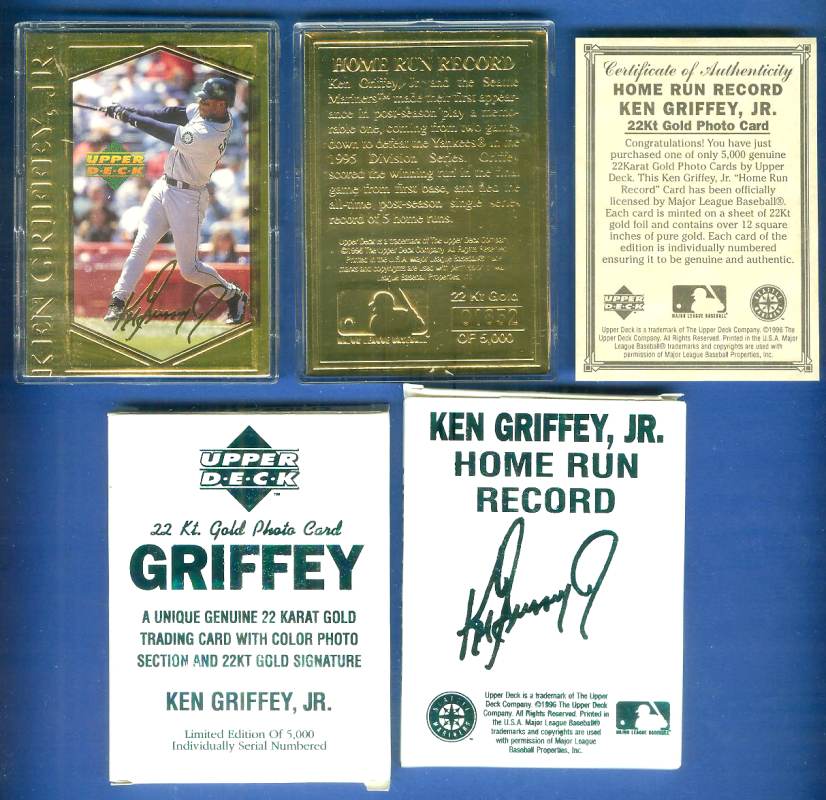| FREE |  |
(10) NM/MINT Vintage Hall-of-Famers click for details |
 |
FREE |
| FREE |  |
(10) NM/MINT Vintage Hall-of-Famers click for details |
 |
FREE |
| USE BACK ARROW TO RETURN TO PRIOR PAGE |
Ken Griffey Jr - 1996 Upper Deck 22kt GOLD Photo Card - Lot of (50)Book = $ *BOOK* Price = $ 215 NM/MINT |

|
|
Below are short bits & pieces on sportscard & baseball trading card collecting. Please wander around the website for more info, prices, values & images on vintage baseball, football, basketball, hockey, sport and non-sports cards. 


1 
Tobacco Cards
Starting approximately in 1886, sportscards, mostly baseball cards, were often included with tobacco products, for promotional purposes and also because the card reinforced the packaging and protected cigarettes from damage. These sports cards are referred to as tobacco cards in the baseball card hobby. Over the next few years many different companies produced baseball cards. Tobacco cards soon started to disappear as the American Tobacco Company tried to develop a monopoly by buying out other companies. They were reintroduced in the 1900s, as American Tobacco came under pressure from antitrust action and Turkish competition. The most famous and most expensive, baseball card is the rare T206 Honus Wagner. The card exists in very limited quantities compared to others of its type because Wagner forced the card to be removed from printing. It is widely (and incorrectly) believed that Wagner did so because he refused to promote tobacco, but the true explanation lies in a dispute over compensation. Soon other companies also began producing baseball and football cards. Sports magazines such as The Sporting News were early entries to the market. Candy manufacturers soon joined the fray and reflected a shift toward a younger target audience for cards. Caramel companies were particularly active and baseball cards were one of the first prizes to be included in Cracker Jacks. World War I soon suppressed baseball card production.
© 1995-2019 "InterNet's Baseball Card Store" / Joseph Juhasz ... All Rights Reserved |